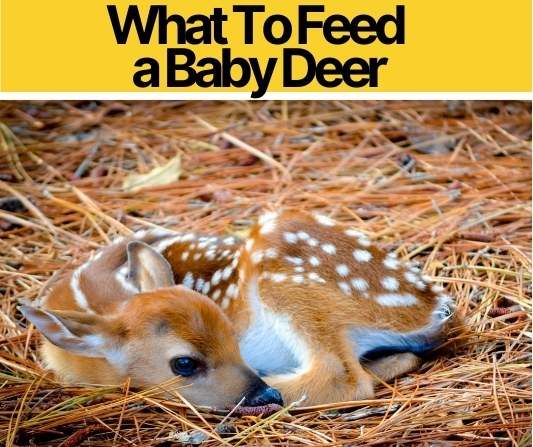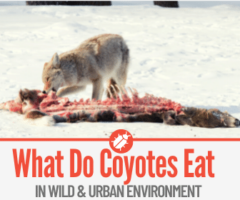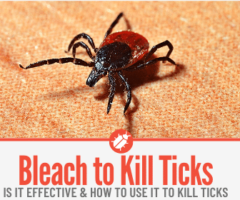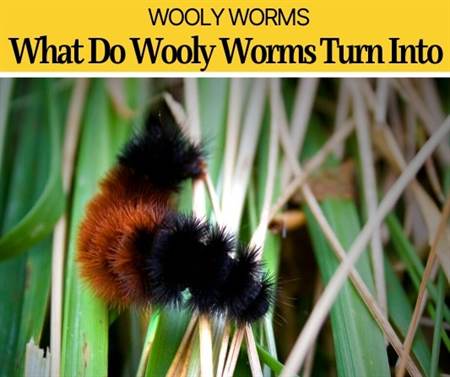 Butterfly bushes, scientifically known as Buddleia davidii, are a gorgeous and perfect choice for most landscapes. They grow effortlessly, require very low maintenance, have evergreen foliage, and bloom in beautiful and bright colors.
Butterfly bushes, scientifically known as Buddleia davidii, are a gorgeous and perfect choice for most landscapes. They grow effortlessly, require very low maintenance, have evergreen foliage, and bloom in beautiful and bright colors.
Butterfly bushes are known for being pollinator attractors, but if you are wondering if you will have to deal with deer asides from bees, oh dear, you’ll be quite surprised.
Do Deer Eat Butterfly Bushes?
Deer have quite a reputation for feasting on many greens, but their taste buds are actually somewhat picky when it comes to choosing the right meal. Deer are most likely to reject those plants which they don’t like and go in search of their favorite greens such as acorns, chestnuts, hostas, daylilies, and arborvitae. However, during winter their picky efforts might have to end due to lack of their favorite food.
Butterfly bushes are not on their top meals and deer will rarely eat a butterfly bush. Even if they did because of lack of options, the plant is so resistant it will heal within weeks.
So, Do Deer Like Butterfly Bushes at all?
Butterfly bushes have tiny flowers with a characteristic honey-like scent that most insects love, but deer consider too strong for them to eat.
Also, butterfly bushes start blooming in midsummer and continue all around the fall, which means during the months that deer are most active (Late winter and spring) this woody bush will not have much to offer to curious fawns or hungry deer. But might be an ultimate choice during colder seasons.

Are Butterfly Bushes Deer Resistant?
The truth is, there is no such thing as a deer-resistant plant; rather, there are trees and bushes that deer prefer less. Most of those plants that are considered deer resistant are those deer dislike because of their odor, taste, or texture, but during harsh seasons (from October to February) they will eat whatever is available.
Since deer dislike strongly scented plants, butterfly bushes are considered deer resistant, but keep in mind this does not mean they are deer-proof. Since deer have a fascination for tender leaves, most young bushes are at the most risk of being eaten by a deer; also bushes covered in snow can confuse deer and they may end up eating the plants they rarely consume.
Butterfly bushes are perennial plants that are most likely to die every winter, therefore pruning them before winter arrives will not only be helpful for your bush to come back stronger, but it might also protect them from any hungry deer.
Are Dwarf Butterfly Bush Deer Resistant
Compared to a normal size butterfly bush, which is around 6 feet tall, dwarf ones will be 3 feet tall. Sometimes dwarf versions of a tree can be more attractive to a deer due to the availability; here the rejection comes from the sweet smell of the Butterfly bush, so your dwarf version is most likely to be safe too!
Are Butterfly Bushes Toxic To Deer?
No, the butterfly bush is not edible, but it is not toxic either. The smell will most probably keep most animals away, but it is considered safe for mammals and humans. However, it is not to be confused with the butterfly weed, which is actually toxic.
Also known as milkweed, it is a plant with neon bright-orange flowers that butterflies seem to love, however, this plant contains a toxic compound known as cardiac glycoside that can provoke severe intoxication to animals and even humans.
Also Read: What do Baby Deer Eat
What Animals Eat Butterfly Bushes?
Butterfly bushes are not only easy to take care of, but they are also popular because they are disease and pest free, however, this does not mean that they are immune to being a banquet for some creatures.
Butterfly Caterpillars
The larvae of butterflies tend to feed on this bush. The caterpillars of the Bay Checkerspot butterfly are known to be one of the top predators of butterfly shrubs. You can identify if a caterpillar is eating your bush because they chew on the leaves, leaving some small holes behind.
Japanese Beetle
Japanese beetles are quite a nightmare for most plants; these metallic green insects defoliate the whole leaf, leaving only the skeleton behind. They cause the most trouble around summer.
Moth Larva
The larvae moths also consider butterfly bushes quite a feast, especially the Genista caterpillar, which will turn into the Genista broom moth. These creatures form a white web around the foliage and eat the new leaves, causing almost invisible damage.
Spider Mites
These tiny animals can cause extensive damage to our butterfly bush, especially the twos potted mite. They tend to live underside of the plants and spin silk webs, leaving some brown spots behind for starters, but if they are not treated immediately they can kill the plant. They are very small to identify, but their webs will give them away.






